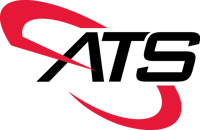Your sales teams might get excited about what AccuCloud, our new cloud-based time and attendance solution offers in terms of additional revenue and enhance customer service. But we know what you're thinking:
How does this thing work and is it going to make my life easier?
We'll go over the technical basics of AccuCloud in this post:
- Overview of components and architecture
- Data integration options
- Software installation and the update process
- Day-to-day management (it will make support easier, promise…)
Overview of AccuCloud Environment
The AccuCloud system is comprised of the following components:
- Your customer’s ATS time clocks.
- AccuCloud middleware that communicates between the ATS time clocks and your application. The middleware controls and validates all the data between the time clocks and your customer's instance.
- The AccuCloud Portal gives you full visibility into all your customers' ATS time clock installations. You'll see each and every device to easily monitor their on/offline status. The portal is also where you can monitor integrations.
ATS hosts both the AccuCloud middleware and portal in a secure, cloud-based, multi-tenant architecture, so it puts no additional server-side responsibilities on your team. The ATS team also builds the isolated cloud instance you'll use to monitor and manage each customer.
Integrate Using Flat File or Web Services
AccuCloud can be set up to integrate using an SFTP to send employee and punch data sets or using active web services. The decision is yours.
Using a data set integration is the option that will get you up and running the quickest. The trade-off is that AccuCloud and your application can share a wider array of data through a web services integration.
Many customers can share the full scope of data they need with the data set integration and we often find that many VARs don't typically build web services. Either way, the ATS AccuCloud tech team works with you to set up and test the integration option you select.
AccuCloud is a True Plug-and-Play Solution
We'll work together to design the terminal configuration(s) your company wants to offer customers.
We also send your customer the customized time clocks. All your customer needs to do is connect the ATS time clock to a power source and its network. From there, the AccuCloud middleware detects their presence and pushes out the software and their configuration.
We handle pushing out AccuCloud software updates or any configuration changes you want to make the same way. All the time clocks get updated on your schedule and your entire deployment remains running on the same software at the same time. No different versions to manage.
AccuCloud Monitoring Tools Improve Customer Support
We understand that it’s not an easy task to manage time clocks. That’s why we manage as much as the hardware as possible and give you greater control and visibility.
Think about it: you're already carrying some responsibility for how time collection data gets into your system, whether it's another type of device or through manually created data sets. You just have no control or visibility into what's happening on the data collection side.
The AccuCloud portal gives you that visibility and control to monitor devices and integrations. Through various analytical tools, your team can proactively resolve time collection support issues before they become fires.
That means support is easier, more cost-effective, and results in happier customers. For any support issues that can't be resolved quickly, your team can use the AccuCloud portal to contact the ATS support team directly.
Contact Us to speak with one of our experts and learn how cloud-based time and attendance can help you.


